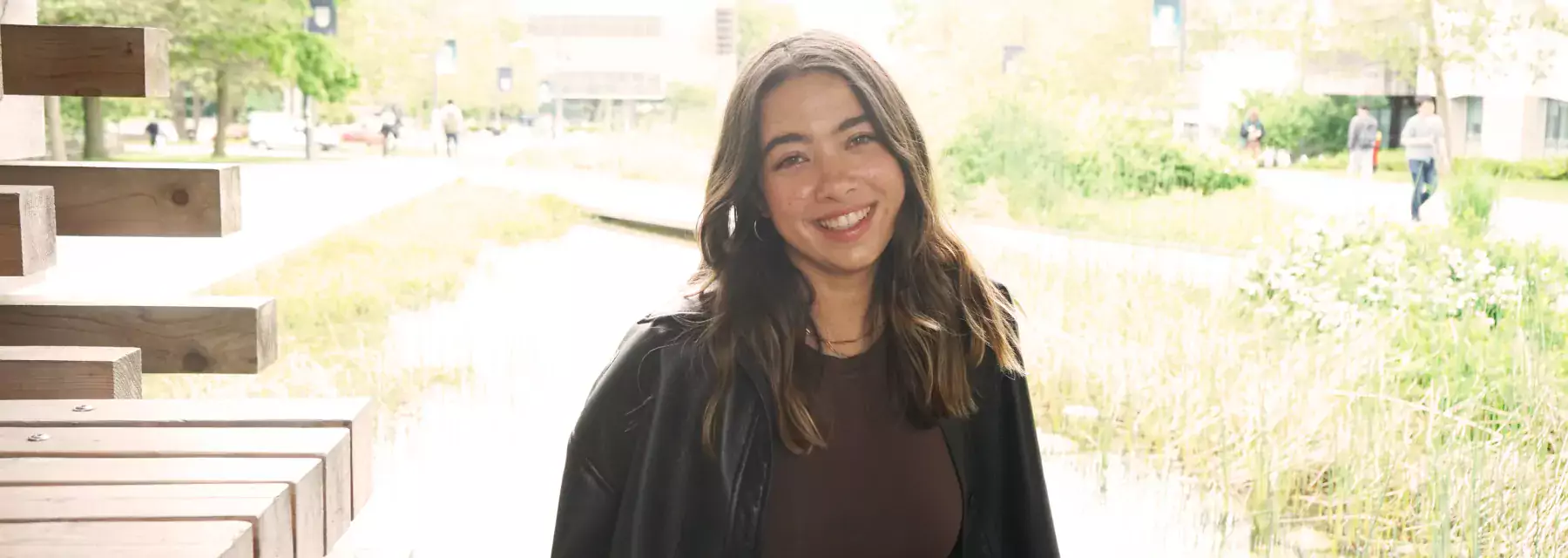
MDS Spotlight: Meet Saffrin Granby, MDS Computational Linguistics, Class of 2022
Before joining the UBC Master of Data Science (MDS) Computational Linguistics program, Saffrin Granby was finishing her Bachelor of Science in Cognitive Systems at UBC where she specialized in Computer Science. In addition, during her undergraduate degree, Granby was working at the CANARY lab at UBC where she worked on using linguistic features to detect the presence of Alzheimer’s disease.
“I think data science is being used to solve a lot of really cool problems,” Granby said. “Natural language data that can be used for really impactful applications such as improving health care or flighting climate change. It feels like a really important field right now.”
Knowing that she wanted to pursue a career in data science, Granby applied to the MDS Computational Linguistics in her last year of her undergraduate degree.
“I liked that the program was only 10 months long and that I would be able to focus on state-of-the-art NLP techniques,” explained Granby.
She added that the program really combined her love for linguistics and her previous experience in computer science.
“I like using my technical skills and my ideal career involves working with language data. So, I felt like the MDS Computational Linguistics program was a good match.”
What Granby liked most about the program was the curriculum and how it included working with real data during labs and group projects.
“Working with real data makes the problem feel more real and useful. It allows me to use the techniques used in assignments to tackle new problems,” she added.
The capstone project of the program also gave Granby a taste of what it is like to work as a data scientist and apply the concepts learned in class to a meaningful and important project.
As well, the capstone project gave Granby experience on how to work with a client and communicate progress, constraints and present work done. In addition, it allowed Granby to work with a group on a large-scale project from start to finish.
Finally, Granby liked learning from her cohort as they bring so many different perspectives to the classroom.
“Everyone has a unique work and academic background, which brings a lot of cool stories and answers during class time.”
After program completion, Grandy will start her role as a Decision Advisor with Vancouver Coastal Health, where she will be helping the analytics department expand their Natural Language Processing analysis.
“I am very excited for this opportunity and I feel like this program gave me the skills to succeed in this role,” she added.
Saffrin’s Top 3 Tips on Succeeding in the MDS Computational Linguistics Program:
- Don’t leave everything to the last minute. I tried to start all my assignments as early as possible because I would always eventually run into road blocks with my progress and need guidance.
- Ask for help. Of course, it is great to try to figure out things on your own but it is important to develop a sense of when to ask for support from peers and professors/TAs. They are there to help you so use them
- Schedule time to rest and step away from work. This is a hard one for me but with such an intense program, it is still important to set some boundaries and to take care of yourself.
